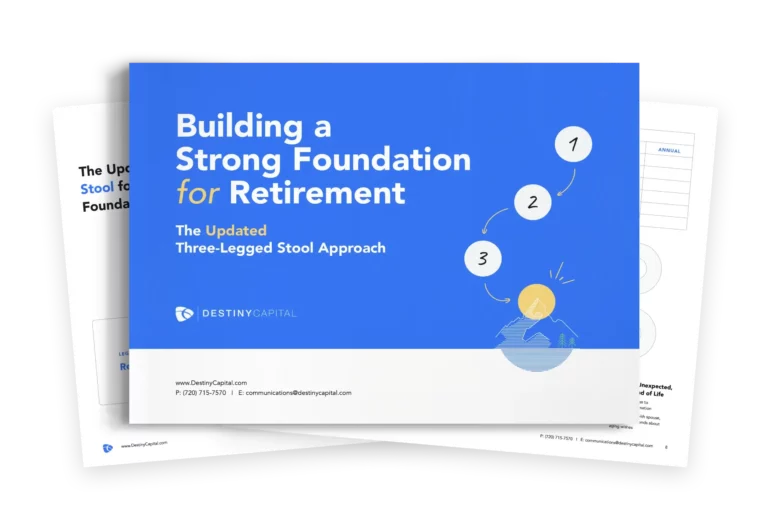The Do’s and Do Not Do’s After the Loss of a Spouse
If the death of a spouse isn’t bad enough, next comes dealing with the financial aftermath. The loss of a spouse can unleash a cascade of questions, tasks, and worries, especially if the spouse who passed away was “in charge” of the financial side of the household.
The first few months following the death of a spouse are going to be filled with questions surrounding what happens now. There are a few “dos and don’ts” to follow during these months.
Things To Do:
Keep Paying Regular Monthly Expenses – This seems simple, but simple things can be easily overlooked during this time. Monthly expenses that are not set up to be paid automatically may not get paid. Make sure you are still paying things like the mortgage, insurance premiums, utility bills, and car payments. Consider setting these bills on automatic payments if they are not already.
Evaluate Your Personal and Household Expenses – Your typical spending patterns have changed even if it feels like they have stayed the same. Start keeping a closer eye on your cash flow to begin seeing a pattern of your new spending habits. Also, look into canceling recurring bills that only benefited your spouse and/or will no longer benefit you.
Review Your Insurance Coverage(s) – There may be issues if you were insured by your spouse’s employer. A clock starts ticking after the covered employee passes away. The spouse of the covered employee typically has 30 days after the death of a covered employee to notify the health plan administrator and then is eligible for COBRA benefits for up to 36 months.
Discover All Financial Accounts – Most married couples designate one person to be in charge of the household finances, and this often leaves the other spouse in the dark about where money is coming from and where it is going. Your most recent tax return can help you find money that is coming into the household and where it is going. Start collecting mail (or electronic notifications) from your financial institutions. These statements can act like breadcrumbs leading you to your accounts.
Review, and If Necessary, Update Beneficiaries on Accounts and Insurance Policies – Your estate planning will have likely changed after such a significant life event. Keep your beneficiary designations aligned with your new circumstances. The beneficiaries named on your accounts and insurance policies direct where the money/property will go, regardless of what your estate planning documents say. Your designated beneficiary will have the claim to the property even if your estate planning documents say otherwise.
Change the Titling of Any Joint Accounts – This will streamline things and help avoid any complications later on.
Things NOT To Do:
For at Least the First Year, Do Not Make Any Big Decisions You Cannot Change – Paying off the mortgage, buying an annuity, canceling insurance policies, doing a reverse mortgage, giving money to friends, family members and/or charities are all major money decisions and cannot be undone if you change your mind. You can always do these things at a later time. Give yourself plenty of time to think about these irreversible decisions.
Do Not Continue Your Financial Life As If Nothing Happened – The death of a spouse can spark many changes to the household finances. There may be a loss of income, a change in investment strategy, or a lump sum of insurance money. Do not continue on the path as previously planned. The landscaped has changed, and you should not be navigating using an old map.
Do Not Give in to Pressure From Others – This includes people both inside and outside of the family. Relatives may have your best interest in mind, but they may not know what is actually best for you. Good intentions do not always lead to good outcomes. People inside the family are also grieving and may not be thinking clearly.
Do Not Do This Alone – Assemble a team that is knowledgeable about what you are going through and has seen this before. Work with experts who specialize in this area and who have helped many of their clients go through this situation. Make sure you trust them, feel comfortable asking questions (lots of questions), and that you clearly understand the answers you are given.
Taking on your finances after the death of a spouse can be a daunting task. But eating the elephant one bite at a time and getting help from knowledgeable and trustworthy professionals will lessen that burden. You are much more capable of doing this than you may think. If your spouse could do it, why can’t you?
Have any questions? We’re here to help!
{{cta(‘b98204c7-0e0e-4d3b-895d-e54ef00e4f97’)}}
Share this
Stay Ahead with Smart Investments
Learn how to invest wisely and minimize risks to protect your retirement savings.
Achieve Your Retirement Goals
Get personalized advice to meet your retirement goals. Book your call with Destiny Capital now.




